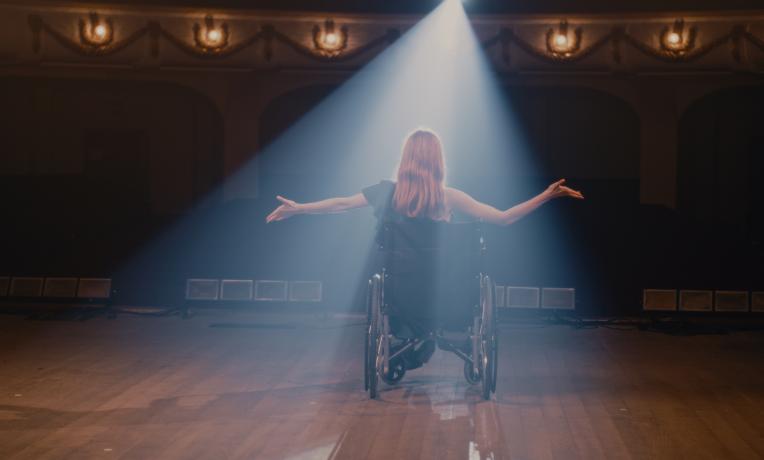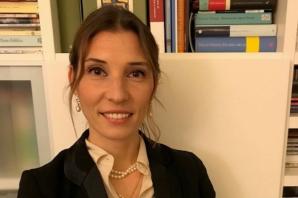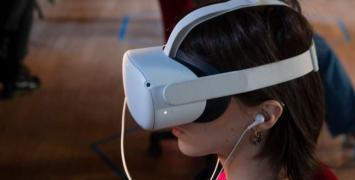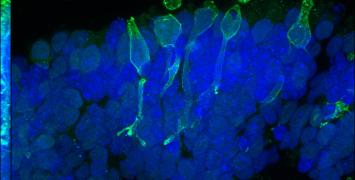Reimagining cultural diversity: disability and inclusion

Culture plays a prime role in creating inclusive and diverse societies. Even so, persons with disabilities are often excluded as they face multiple barriers when taking part in cultural life. How do the cultural rights of people with disabilities intersect with the promotion of cultural diversity in European Union law? Combining legal scholarship with empirical and arts-based research, ERC grantee Delia Ferri aims to advance the legal understanding of cultural diversity as well as to challenge the cultural exclusion of persons with disabilities.
Why is the right to participate in cultural life important?
Everyone, including persons with disabilities, has the right to access works of art and heritage, to tell their stories, to express themselves, and to be represented in cultural productions, such as in theatre and literature. Culture is fundamental to human dignity and identity. Being able to access and enjoy culture is an important part of being a member of society so it is essential to protect cultural diversity.
Scholars have not yet explored the link between the inclusion of people with disabilities and cultural diversity. In that regard, a novel aspect of the DANCING project is its focus on how the implementation of the UN Convention on the Rights of Persons with Disabilities and the UNESCO Convention on Cultural Diversity intersect at EU level.
DANCING’s research looks at the right to access cultural goods, service and heritage, to receive artistic education and to work in the cultural sector. The project provides an original theoretical approach by constructing the right of persons with disabilities to participate in cultural life as a necessary pre-condition to enhance cultural diversity in the EU.
Watching this video you are accepting Youtube cookies policy
Your research approach is participatory and interactive. How does this work?Besides legal-doctrinal methods, DANCING uses empirical and arts-based research. We want to investigate best practices across the 27 EU Member States and the UK. Through semi-structured interviews and focus groups, we aim to engage in a dialogue with organisations of persons with disabilities to identify the barriers and facilitators to access culture.
We also work with a dance company as part of the arts-based research. The project employs dance as a case study. I have studied ballet and contemporary dance myself, and find dance a powerful tool of non-verbal communication. The act of dancing creates a dynamic relationship between the creator, the dance and the audience. Dance will help us identify what people with different types of disability perceive as exclusionary and what facilitates their cultural participation.
Alongside organizations of persons with disabilities, we involve umbrella organisations of cultural producers, artists, and cultural industries that are active at the European level, and we develop activities with them. DANCING aims to connect to the ‘Voices of Culture’ Structured Dialogue that is part of the New European Agenda for Culture. It is exciting to have the opportunity to engage with artists and people working in cultural institutions to effect change. I am very committed to creating synergies with various stakeholders and to enhancing civic participation.
A final dance performance will mark the end of the project and will be an artistic representation of a new theorization of cultural diversity. We are also planning a documentary about the research process. Through these initiatives, we aim to enhance the inclusive and collaborative dimensions of the project, and to give a visual representation of the research undertaken.
In what ways has the Covid-19 pandemic affected cultural participation?
Although we are still in the project’s early stages, our findings so far demonstrate that there is frequently no coherent approach, not even in the cultural sector of a particular member state. Local projects succeed in creating best practices but when the project ends, there is little follow-up or sharing of the outcomes. Furthermore, a lack of awareness of people working in the cultural sector about accessibility often represents a barrier to inclusion.
The data collected so far confirms that the pandemic has exacerbated structural inequalities for people with disabilities. Accessibility has not been a key concern in the digitalization processes that occurred during the lockdown. Moreover, the cultural sector has been among the most affected segments of our societies, and this has exacerbated barriers to accessing cultural content. On a positive note, the pandemic has also created new opportunities: several museums have put virtual tours online and produced other audio-visual products that made culture more widely accessible.
My aim with DANCING is to show that the adoption of a comprehensive approach to cultural participation of persons with disabilities is essential to challenge stereotypes and discriminatory practices and to promote an inclusive and diverse society. This ERC grant has enabled me to engage in a truly pan-European participatory research project, and allowed me to shape a new legal concept of cultural diversity that encompasses disability.
Biography
Delia Ferri is a Professor of Law at Maynooth University in Ireland where she lectures primarily in the fields of EU law and International and European Disability Law, and acts as director of the Postgraduate Research (PhD & MLitt) Programmes in Law. She is also the co-director of the MU Assisting Living & Learning (ALL) Institute. Furthermore, Delia is affiliated researcher at the DIRPOLIS Institute (Institute of Law, Politics and Development) of Scuola Superiore Sant’Anna in Italy within the research cluster on social rights, social inclusion and disability, and a fellow at the Burton Blatt Institute of Syracuse University (USA).






